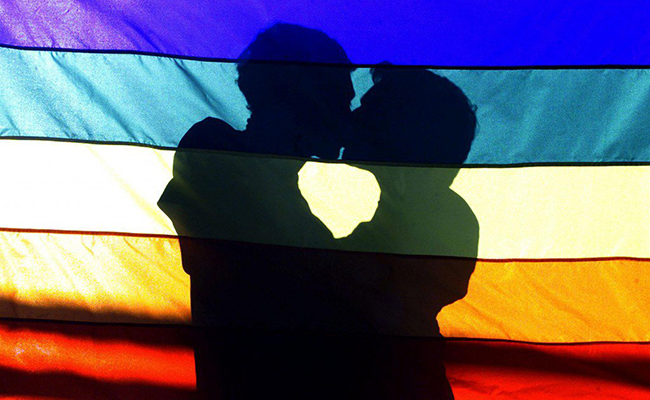‘What’s the point of the Commonwealth if members hurt LGBT people and Britain does nothing?’
We must stand up for our LGBT brothers and sisters, writes Oxford City Councillor Tom Hayes on Commonwealth Day.
By Will Stroude

I met Marcel on Twitter – or at least that’s what I’m calling him for the purposes of thus article. Marcel was an egg unhatched: he followed nobody and nobody followed him.
He had joined Twitter for one reason: he needed help. Conditioned to be scared about State-snooping on emails, nervous about ringing, Marcel resorted to Twitter. As he said when we met for a coffee, sending a private message to a gay local councillor didn’t seem risky when the American President publicly tweets as he does.
Marcel is a gay man in Oxford, born nearly thirty years ago in a Commonwealth country that criminalises homosexuality, where showing who you are can lead to prison or death
. Forced to hide who he was for so many years, Marcel struggles to feel good about himself. The pain of living in his home country may have passed, but Marcel’s memory of living there lingers. Refusing to bottle up his memories and, like so many LGBT+ refugees from the Commonwealth, in need of support, Marcel reached out.
Marcel isn’t alone. Other local councillors tell me about similar experiences of linking up LGBT+ refugees with support services. When I talk to these people, they ask the same thing: what is the point of the Commonwealth if its countries hurt their LGBT+ citizens so badly? And the UK government stands by and does nothing?
This year’s Commonwealth Day is in the fifty-first year since the partial decriminalisation of sex between men in England and Wales. Half a century on, the majority of the Commonwealth has not followed the UK’s example. Why? And what can we do to bring about change?

In 2015, the Commonwealth produced 83% of the people granted asylum and helped by the UK Lesbian and Gay Immigration Group (UKLGIG), a major charity supporting and protecting LGBT+ asylum seekers and refugees.
I believe this shows that the UK has a responsibility and a reason to make the Commonwealth safe for its diverse population. We also have a historical responsibility and a historical reason.
The UK’s colonial past is partially responsible for LGBT+ Commonwealth citizens living as criminals today. We need to accept the British Empire’s role in introducing anti-homosexual legislation. You can go too far with this argument: acknowledging the Empire’s role is key, but so is acknowledging the role of the Commonwealth countries themselves.
These Commonwealth countries are free to end discrimination, have been free to end discrimination for years, and just choose not to. And that gets to the heart of the challenge for the Commonwealth, a political club of 52 countries who volunteer to associate.
All members carry equal weight and make decisions by consensus, so the Commonwealth best achieves change when member governments agree to rise to a challenge.

The Commonwealth’s Secretary-General Baroness Scotland is working energetically to build consensus and galvanise governments. Next year, leaders hold a big summit in the UK. This is a real opportunity to strengthen LGBT+ rights, and the Commonwealth and the meeting chair, Theresa May, have to seize it with both hands.
We’ve seen some steps forward recently. Mozambique is a recent example of a country refusing to cling to outdated laws. The Seychelles has also repealed a ban on gay sex. 36 Commonwealth countries now criminalise homosexuality, down from 46 ten years ago.
In the UK, Stonewall trustee and Black Pride co-founder Phyll Opoku-Gyimah turned down an MBE in 2017 in protest at the repressive anti-LGBT+ laws of Commonwealth countries. Whatever your view on monarchy, it’s a big deal when a future Head of the Commonwealth appears on the front cover of a gay publication – Attitude – for the first time.
Prince William and other royals could use their positions and profile to make history again, this time standing up for inclusive Commonwealth societies for all people. Allies count and symbols matter.

Tom Hayes is an Oxford City Councillor
With the Commonwealth pressing members to improve their human rights records and UK activists sharing support and platforms to LGBT+ activists in their home countries, we may yet see more progress.
We need to exploit summits like the one being hosted in London next month to protect LGBT+ rights. This Commonwealth Day, everyone who cares about LGBT+ rights has a chance to stiffen the spine of politicians to put pressure on leaders in Commonwealth capitals that repress LGBT+ people.
We have a chance to help activists to drive change in their own Commonwealth countries. Prejudice and discrimination confines us all and fails us all.
The buck stops with all of us for helping LGBT+ people enjoy an inclusive Commonwealth.
Follow Tom Hayes is an Oxford City Councillor. Follow him on Twitter @CllrTomHayes.
